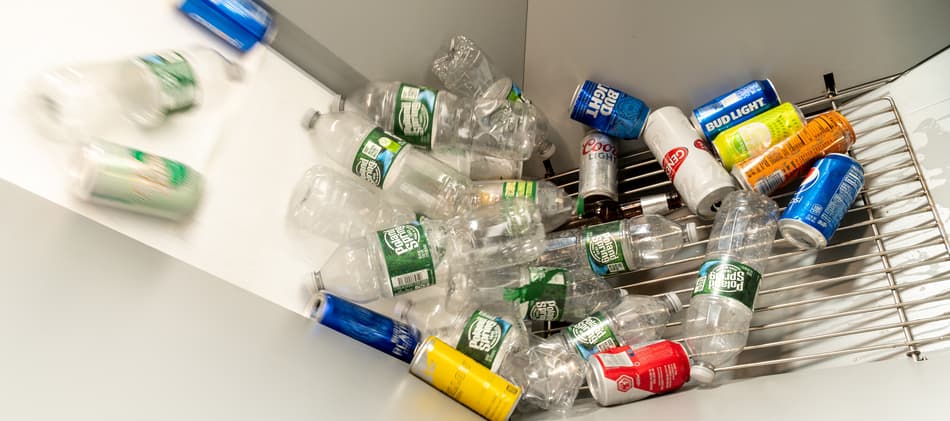What deposit systems can deliver
High-performing deposit return systems for drink containers achieve recovery rates of 90% and above. The latest data from Eunomia on deposit systems in Europe shows recovery (or “redemption”) rates of 84% to 96%, with a median rate of 91%.
"Currently, beverage producers are struggling to reach commitments to manufacture containers with more recycled content – because there is a shortage of supply of the high-quality, food-grade material that can be used for this purpose," shared Wolfgang Ringel. "The separation of container materials in a DRS reduces contamination from other types of household recycling or waste, where such contamination makes containers more complex or costly to recycle."
In addition, billions of containers are not being captured by existing collection systems at all, which results in litter, landfill and a waste of resources. A DRS can prevent drink containers from ending up as waste, ensuring they do not become contaminated and allowing them to say in a closed loop. Closed-loop recycling is the process that ensures materials to be collected, recycled and repurposed into the same product (or one of similar high quality), once its initial use is no longer required. This is essentially what a DRS enables, due to a collection system that separates materials and retains their quality.
"The negative environmental impacts associated with extracting virgin natural resources and manufacturing new containers are repeated if waste management systems are not sufficient to capture used containers and recycle them back into a closed loop," added Wolfgang Ringel.
Deposit return schemes become commonplace on a global scale
With serious issues related to plastic pollution beverage container waste coming to the forefront, policymakers around the world and at regional, country and state levels are re-evaluating waste management systems and giving consideration to deposit return systems.
"As well as the introduction of new policies and targets driving a need for environmental initiatives, more markets are committing to introducing new deposit systems or expanding existing systems. Trade organizations and the wider public are also supporting deposit systems, with beverage producers also set to benefit from recycled content in their packaging," concluded Wolfgang Ringel.
"Well-designed deposit return systems have become a proven method to quickly reduce plastic waste and litter, and increase the supply of high-quality recycled material, taking us one step closer to a circular economy."





